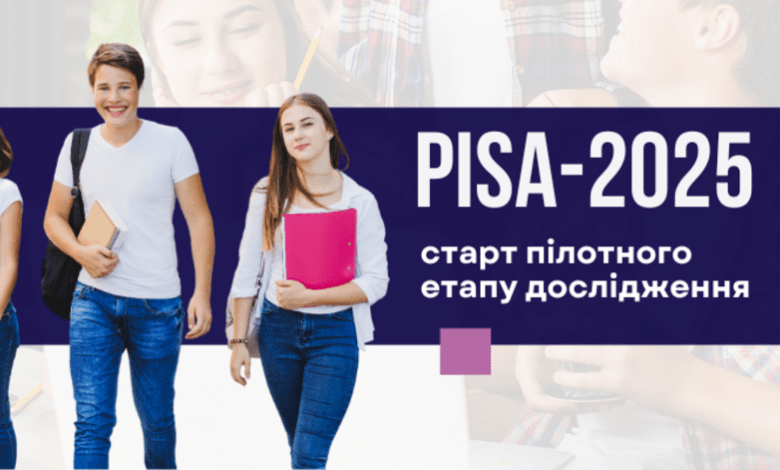The main stage of the international monitoring study PISA-2025 to study the level of competence of students has started in Ukraine

The quality of children’s education is one of the most important components of the future of any country. It is education that forms a generation that will determine the further development of society, the economy and the state in general. In the conditions of war, this issue takes on special importance, because children and adolescents face not only educational challenges, but also constant psychological pressure, environmental change, loss and forced displacement. The educational process is disrupted due to shelling, the destruction of schools and the constant threat to life. In such realities, it is important not only to maintain access to education, but also to do everything possible to ensure that education remains high-quality and meets modern challenges. That is why Ukraine’s participation in international research on the quality of education is extremely relevant.
On March 18, the main stage of the international monitoring study PISA-2025 officially started in Ukraine, which will last until the beginning of May. More than 10,000 Ukrainian teenagers aged 15 from almost three hundred educational institutions, selected according to a special international procedure, will take part in the study. The sample included schools both in cities and in villages of 17 regions of Ukraine, where the security situation allows conducting research. These are institutions in the Vinnytsia, Volyn, Zhytomyr, Zakarpattia, Ivano-Frankivsk, Kyiv, Kirovohrad, Lviv, Odesa, Poltava, Rivne, Ternopil, Khmelnytskyi, Cherkasy, Chernivtsi, Chernihiv regions and Kyiv. They were selected according to a special procedure from the list determined by the international sampling company Westat. It was reported Ukrainian Center for Evaluation of the Quality of Education (UCOYAO).
Participation in PISA involves not just writing tests, but also filling out questionnaires by both students and heads of educational institutions. Testing will take place in an electronic format and will cover several areas: reading, mathematics, natural sciences, digital skills and knowledge of a foreign language. In 2025, special emphasis will be placed on the natural and scientific industry. This will allow to assess not only the level of knowledge, but also the ability to apply it in the real world.
The purpose of the research is to find out the level of competence formation of teenagers in a certain field, that is, the ability to effectively use the knowledge acquired both in the educational institution and outside it in various life situations. The survey will make it possible to investigate what factors influence the success of students — from the material and technical support of the school to teaching methods and the level of teachers’ qualifications. The situation with the teaching of the English language, which is also an important indicator of the modern competitiveness of Ukrainian education, will be studied separately.
It is important that all PISA results are depersonalized — they do not show the situation of a specific school or region, but give a general picture of the state of education in the country. This allows us to compare the achievements of Ukrainian children with peers from other countries and to understand how the war affected the level of knowledge.
Ukraine is participating in PISA for the third time, and for the second time – in conditions of full-scale war. The results of a previous study in 2022 showed serious educational losses — they were estimated at 1.5–2 years. Therefore, the current stage is extremely important in order not only to see the real state of affairs, but also to identify the most painful points that require immediate solutions.
Participating in such research is an opportunity to understand the weaknesses and strengths of the education system and to introduce changes where they are most needed. That is why it is right and necessary to check the level of knowledge. But it is important to remember: behind every number there are living children who deserve not just a grade, but a quality education. Therefore, the task of the state should be not only to conduct research, but to implement effective measures that will increase the level of knowledge of Ukrainian schoolchildren even in such difficult times.





